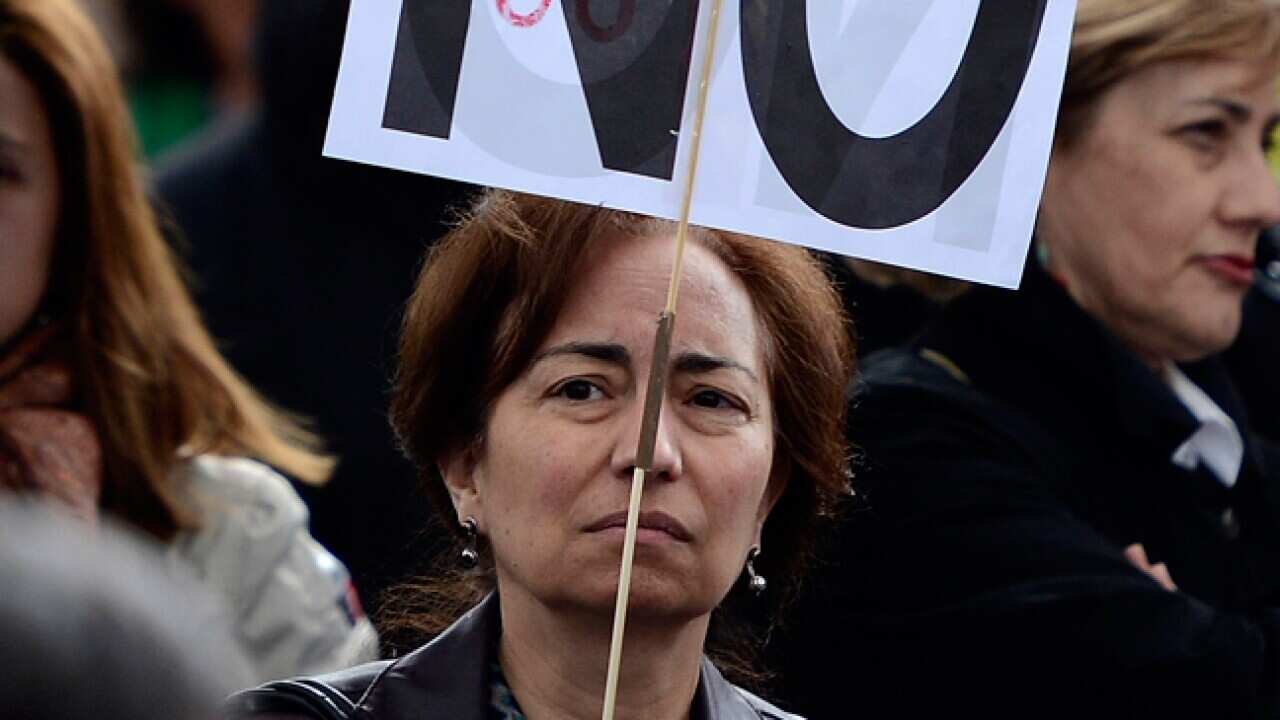From the eye of the eurozone debt storm in Madrid to the streets of Paris and Athens, where tottering governments face elections within days, marchers denounced job losses, spending cuts and hard times.
More than two years after the eurozone sovereign debt crisis erupted, frustration with austerity is boiling over across the continent as voters wait in vain for signs of the economic pay-off.
In Spain, suffering the industrialised world's highest jobless rate of 24.4 percent in the first quarter of 2012, the major unions called protests in about 80 cities.
Tens of thousands massed in central Madrid's Neptuno square, decrying the jobless queue, new labour reforms that make it easier and cheaper to fire workers, and a budget squeeze in health care and education.
"They are going to destroy more jobs with the labour reform," complained 28-year-old graphic designer Sonia Calles.
"Already in Spain almost everyone is an intern up to the age of 30. And now employment insecurity is going to hit those in their 30s and 40s," she said in the capital.
Thousands more rallied in Athens, Thessaloniki and other cities around Greece, five days ahead of cliffhanger general elections.
Polls indicate that Greeks are fleeing the main parties for smaller groups in revenge over a European Union-IMF economic recovery plan that has brought repeated waves of pay and pension cuts.
In Paris, the French presidential election race overcast the day as three powerful political movements battled for attention with competing rallies five days before polling day.
Marine Le Pen's anti-immigrant far-right National Front kicked off the May Day events with several thousand supporters marching through central Paris in memory of Joan of Arc, who has become a far-right icon.
Sarkozy's right-wing supporters gathered en masse in front of the Eiffel Tower to hear their champion promise a "new French model" based on hard work and entrepreneurship, accuse unions of failing ordinary workers and vow to abolish collective bargaining.
And, on the left, trade unions organised their traditional march to the historic Place de la Bastille.
Not far from the Italian capital in Rieti, three leading trade unions organised a concert attended by 300,000 young people where labour leaders called for austerity policies to be scrapped in exchange for pro-growth measures.
In Portugal -- which along with Ireland and Greece needed foreign funding to avert bankruptcy -- thousands rallied in Lisbon and elsewhere to condemn deep spending cuts.
In contrast to Western European rallies, more than 100,000 people held a Soviet-style march through Moscow to celebrate labour day and show support for president-elect Vladimir Putin ahead of his inauguration next week.
Accompanied by kitsch brass music and surrounded by multi-coloured balloons, Putin and outgoing President Dmitry Medvedev led the march through a central Moscow avenue.
In Poland, the Czech Republic and elsewhere on the continent, people showed growing frustration with an era of crushing economic hardship, with crowds reaching 100,000 in Vienna.
A 12,000-person rally in Zurich turned violent when youths set fire to rubbish bins and pelted police with bottles and stones, drawing teargas and water-cannon fire in response.
In Tunisia, home of the uprising that sparked the Arab Spring, some 20,000 protesters flooded a main avenue the capital criticising the moderate Islamist government for not doing enough to curb unemployment that approaches 50 percent in some regions.
In Turkey, tens of thousands from all political parties packed the emblematic Taksim Square in Istanbul.
Occupy Wall Street protesters held simultaneous demonstrations outside a string of Manhattan corporate institutions in the Rockefeller Center neighborhood.
Activists said they are protesting against corporate greed and the plight of ordinary people in an anemic economy and housing market.
"Hey, hey, BOA, who did you foreclose today?" protesters chanted at a Bank of America office building.
Venezuelan President Hugo Chavez, who is being treated for cancer in Cuba, signed a measure on the eve of Labour Day which would shorten the work week from 44 hours to 40.

